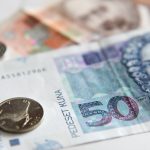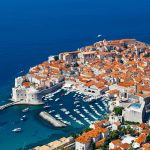In conversation with Dnevnik Nova TV, Croatian Finance Minister Zdravko Marić revealed just how much taxpayers in Croatia had to pay out in guarantees for the country’s ailing shipbuilding industry and the negative effects of the introduction of the euro as the country’s official currency, a move which could happen in five years.
Will citizens and entrepreneurs feel economic growth? For example, will the non-taxable portion of salaries (take home pay) increase?
Entrepreneurs and citizens contribute the most to this economic growth. They create it on the one hand, and when it happens, as a result, we need to strive in the sense of measures, in order to raise the growth rates further.
To increase non-taxable parts of salaries?
It’s still early to talk about the details. Salary growth has achieved positive effects. We should continue in that same direction. In terms of how much space there is [to move] on income tax, there’s even more [space] in terms of the part of the non-taxable part itself. Remember the measure from December last year. More than 1.2 billion kuna was also paid by employers to their employees.
Is there any room to reduce excise duty on fuel?
You should also look at a comprehensive picture in the segment of indirect taxes. As a rule, there’s always something that we have to take into special consideration because of the share of indirect taxes, Croatia is at the very top of the EU. But we should also take that into consideration in a broader context.
When you reduce fuel excise, you know for yourself that the price of everything drops.
Not as a rule always. To the last change in VAT, when we lowered taxes in our history, there’s been no price reduction. But in the last couple of months, we’ve seen lower prices of fruit or meat, while fish and vegetables have even increased.
And in the hospitality industry by 13 percent?
This is the topic we’ll also discuss.
Is the end of the issuing of shipbuilding guarantees?
This is unfortunately like in one of those ads when there’s something extra at the end. I have to tell Croatian citizens that as of today, 4,420,000,000 kuna has been paid, and in the last couple of days the guarantees for the Jaružela ship, a great ship, have been protested, as well as two additional ones. Only 120.000.000 kuna is left. They’re enormous sums of money. You can’t be satisfied with the fact that we’ve paid for the construction of ships that haven’t ever even been built as a finance minister or as a taxpayer.
What are the negative effects of the introduction of the euro?
Due to their very good knowledge and their history of experience with hyperinflation, devaluations before the introduction of the kuna, Croatian citizens say that in the first place, they’re afraid of price increases. This needs to be taken seriously. It’s a topic that doesn’t happen overnight. There are several steps to take along that path. All measures must be taken to minimise any dangers and risks. And that all of the positive benefits manifest and come into effect as much as possible.
Make sure to follow our politics page for much more on the political scene in Croatia.
Click here for the original article from Poslovni Dnevnik










